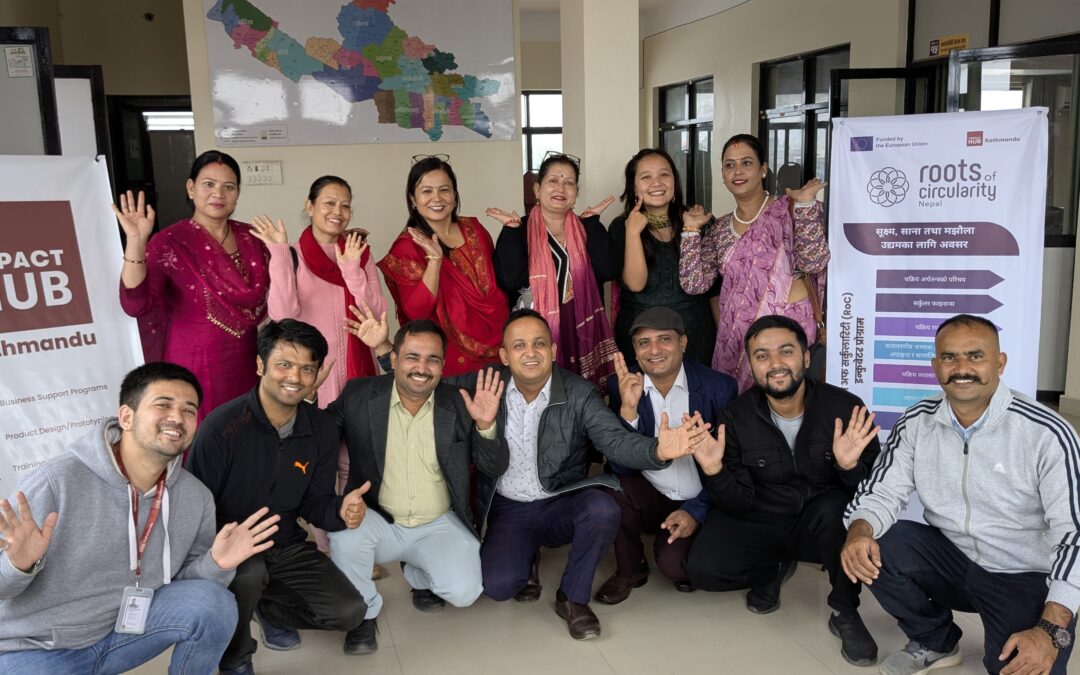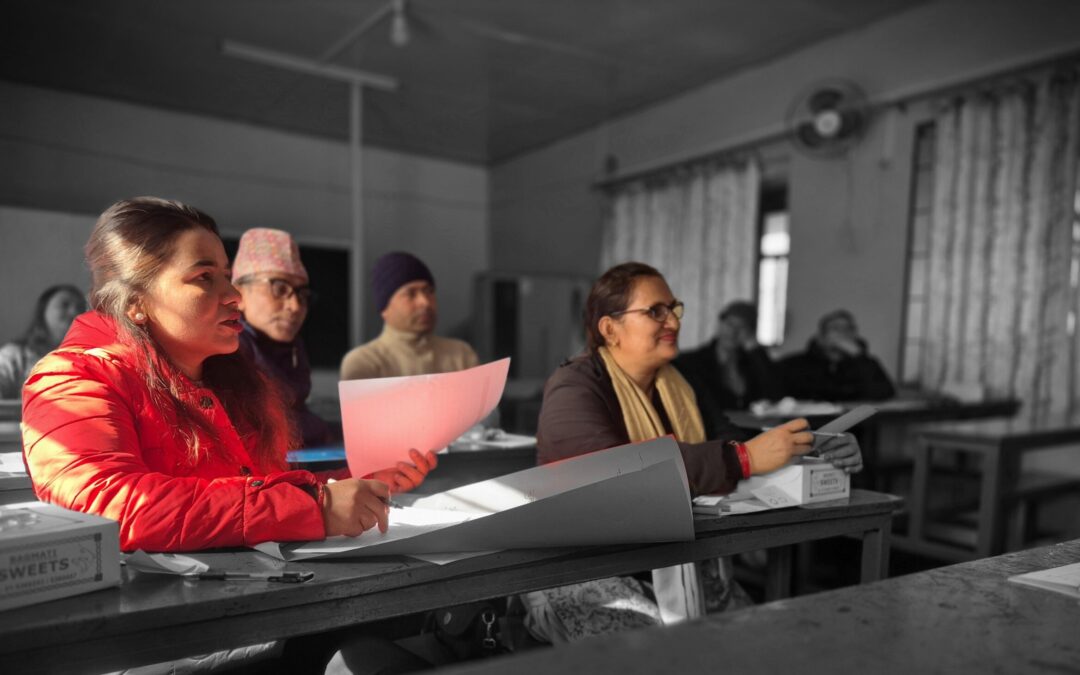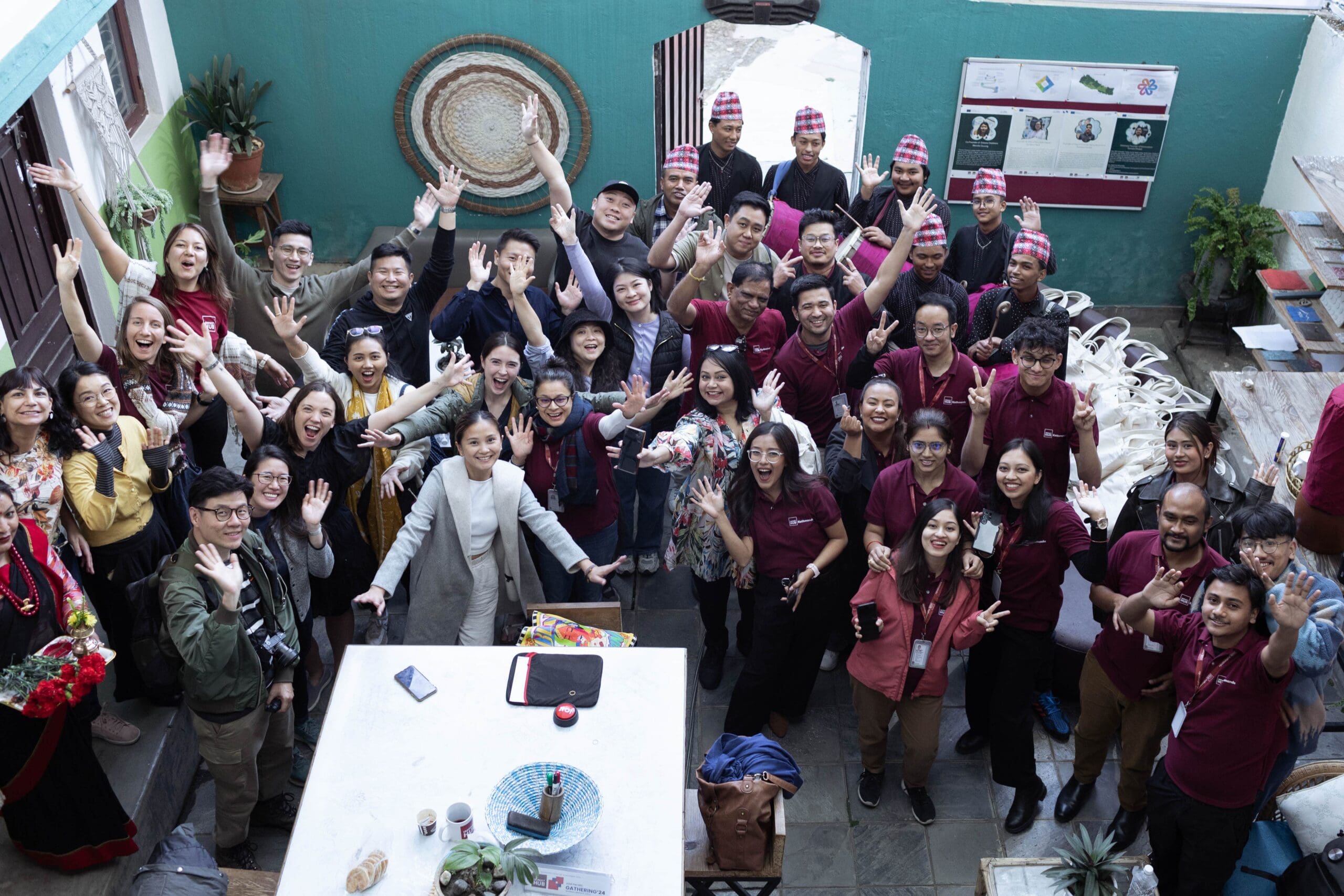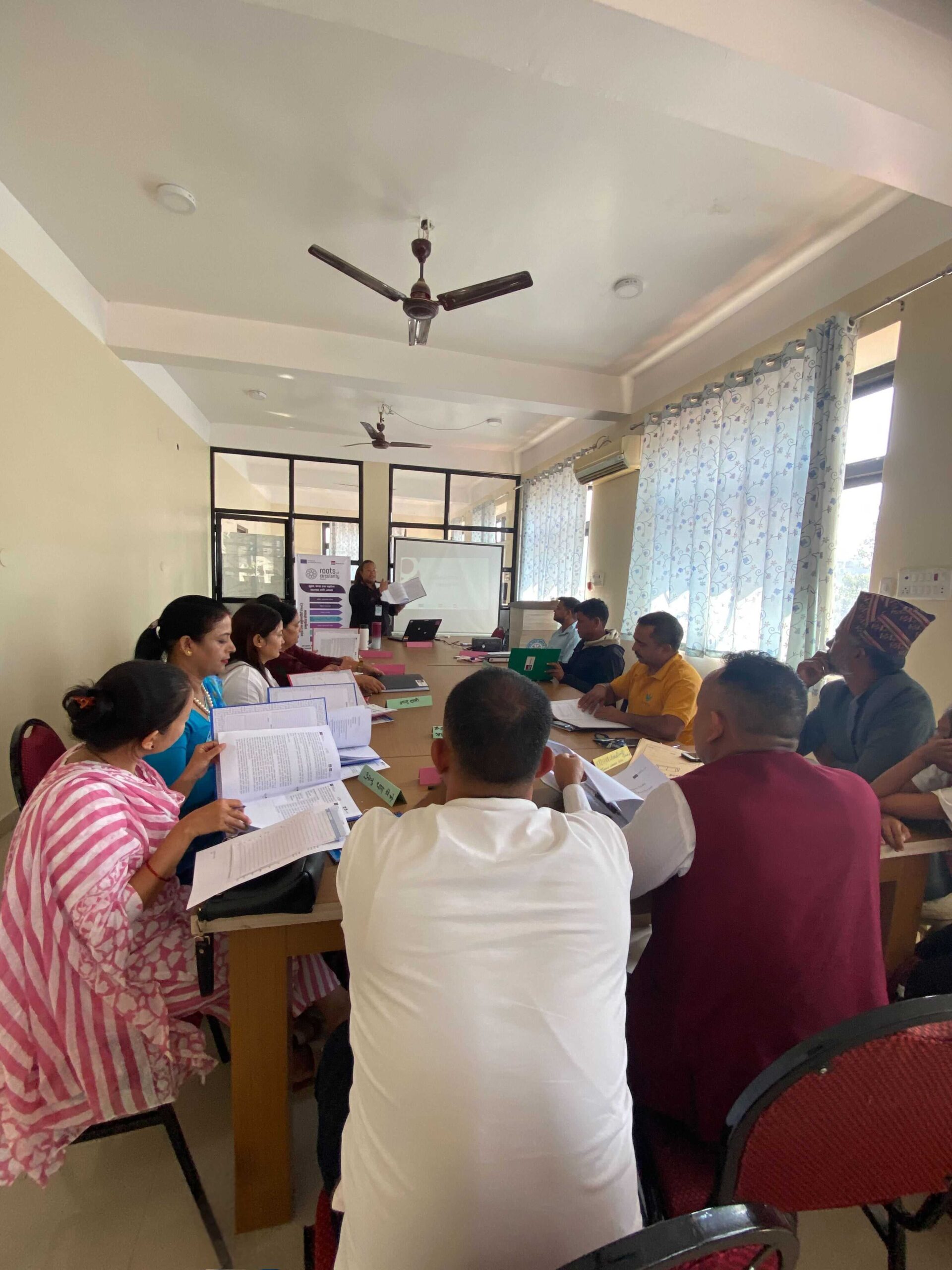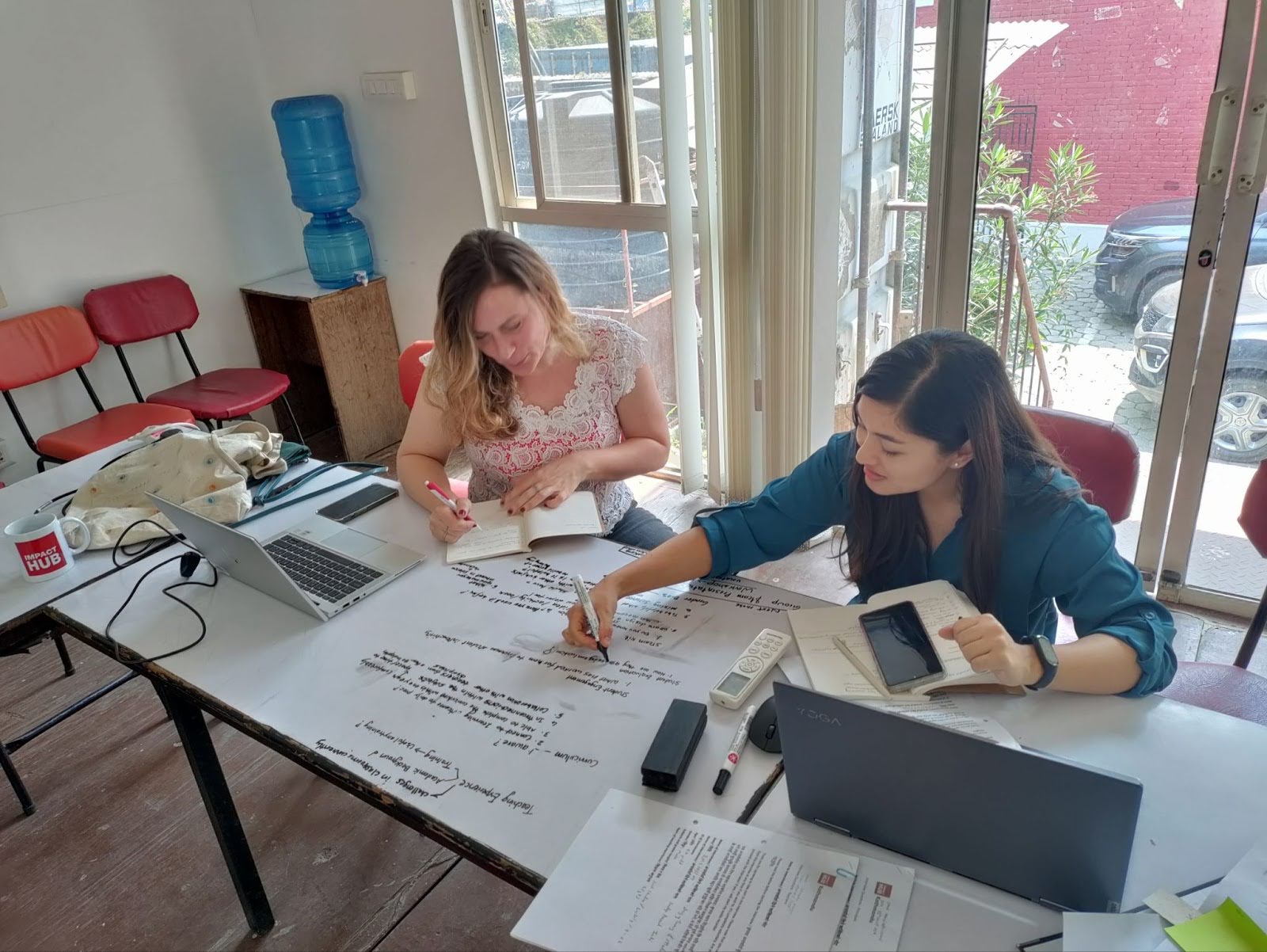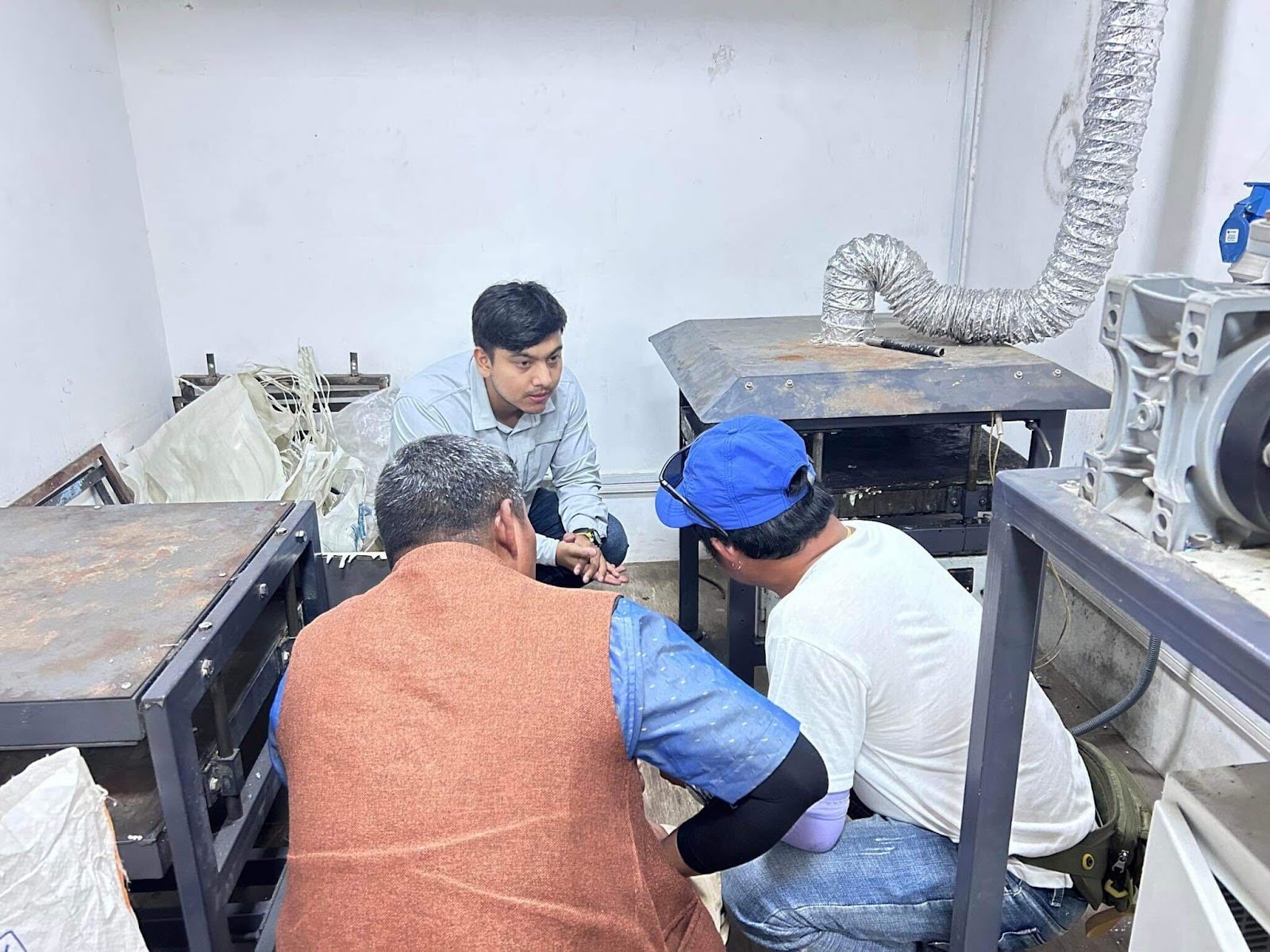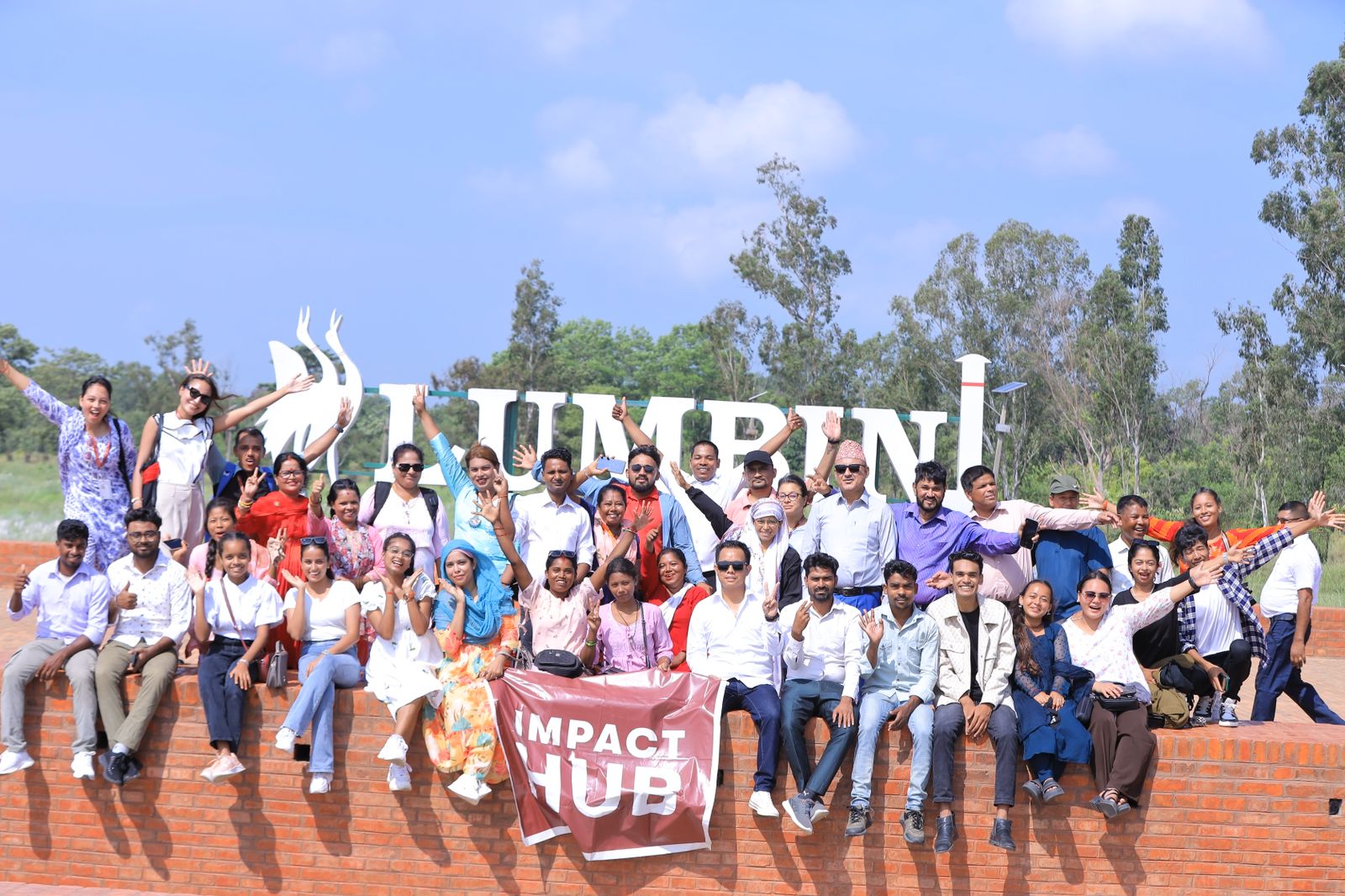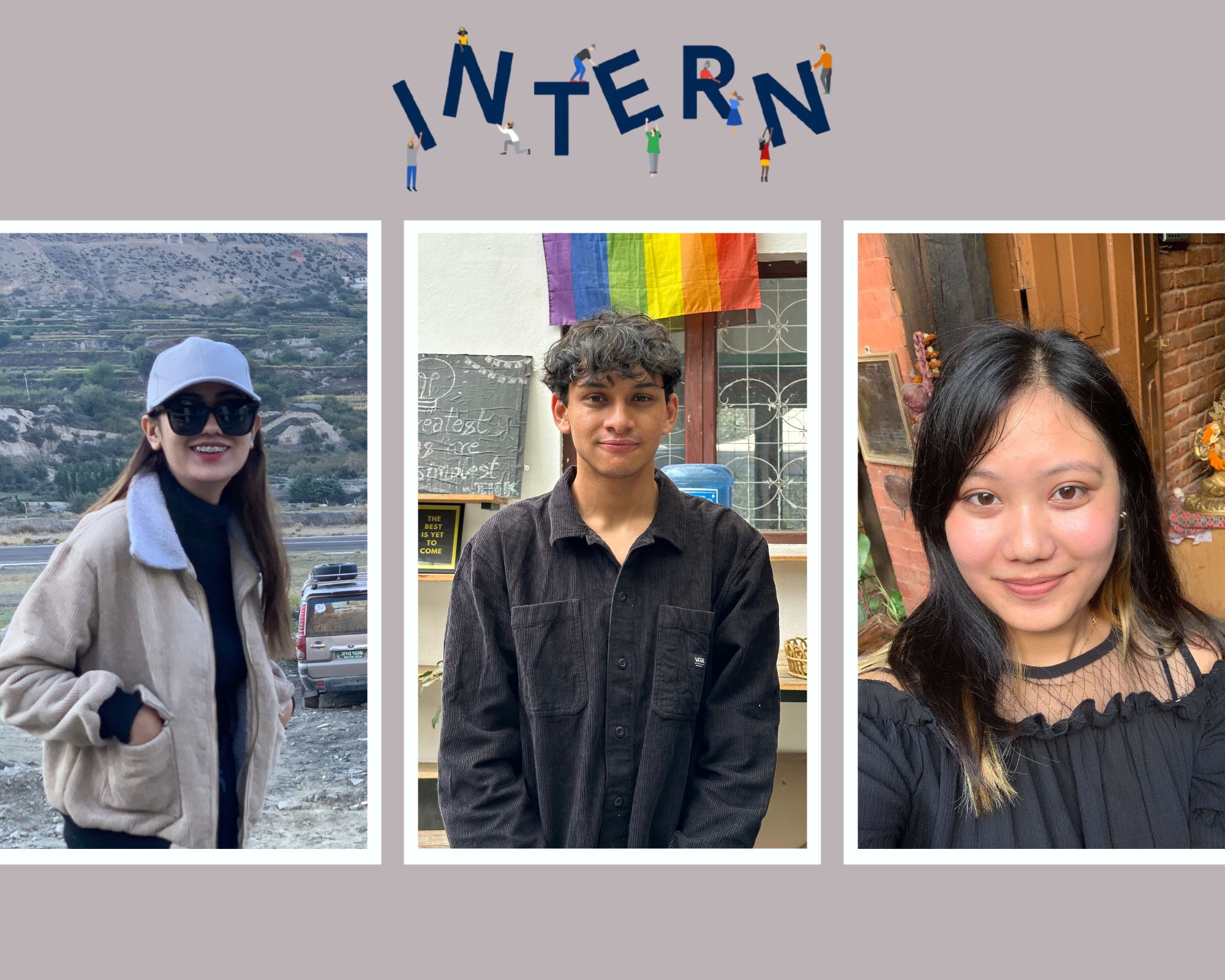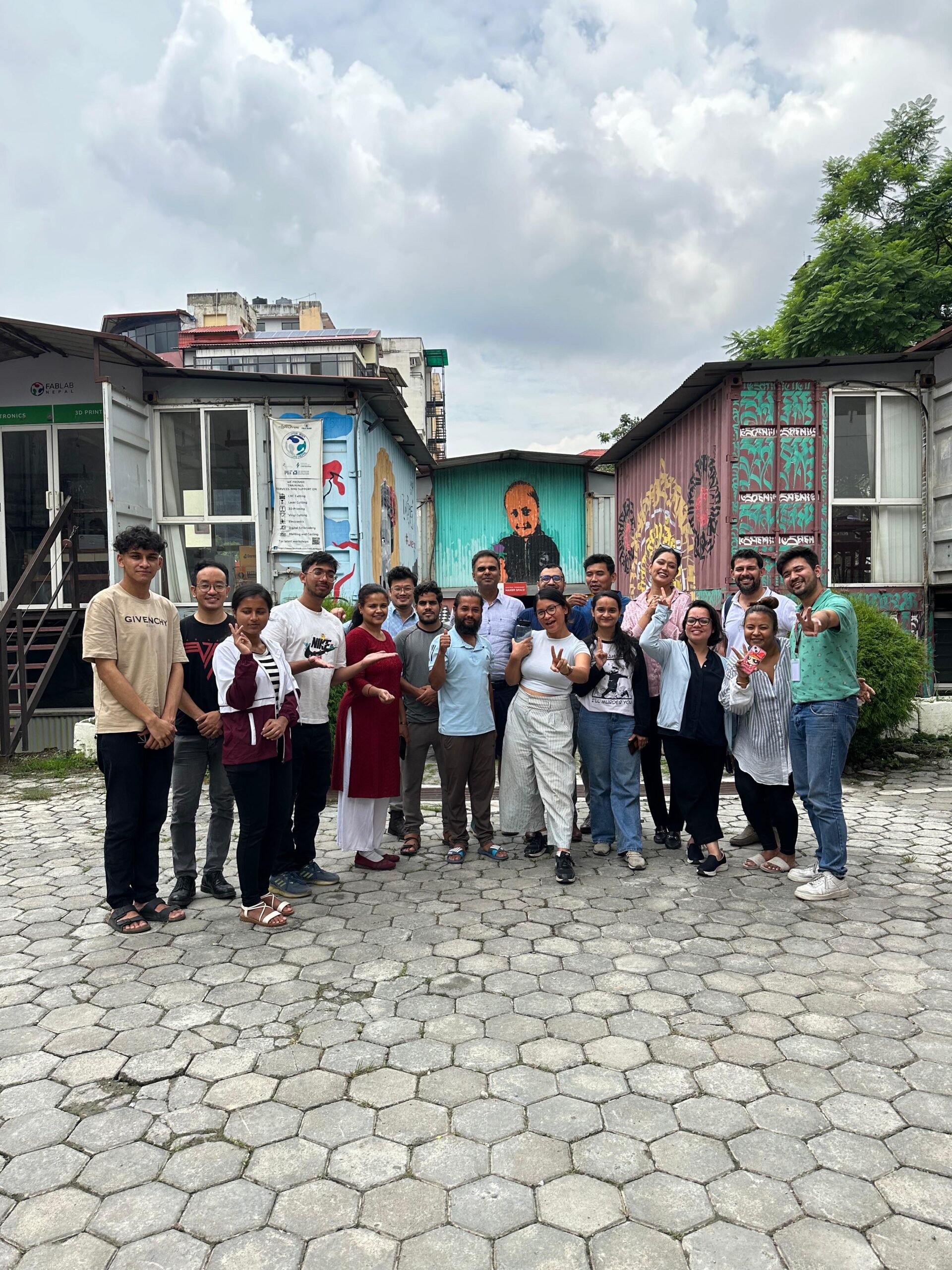By Nishchal Shrestha, Rachana Khatri, and Selisha Shrestha
As the celebrations and pride parade wave throughout the country and globe in June, we at Impact Hub Kathmandu celebrated the occasion in solidarity committing to this theme of Gender equality, inclusion, and rights of the LGBTQIA++ community. Pride Month is celebrated in June to commemorate years of struggle for civil rights and the ongoing pursuit of equal justice under the law for the lesbian, gay, bisexual, transgender, and queer community, as well as the accomplishments of LGBTQ individuals (Wallenfeldt, J).
Every month is a pride month indeed!
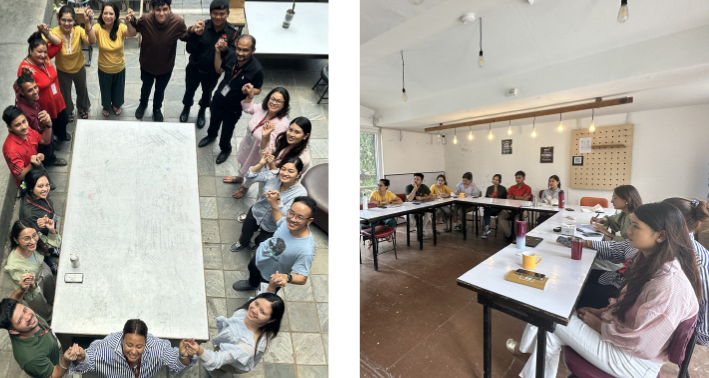
Impact Hub Kathmandu team and Suman Gyawali, providing a session on LGBTQIA++ Sensitization
On June 25th, 2024, Impact Hub Kathmandu hosted a vibrant LGBTIQA++ Sensitization Session to celebrate Pride Month. Led by Suman Gyawali, a dedicated Rainbow Youth Leader, the session educated our team on critical LGBTIQA++ topics, fostering understanding and inclusivity and helping us understand the diverse spectrum of identities and the importance of respectful language. Our team embraced the spirit of Pride Month by dressing in colorful attire representing the Pride Flag, showcasing our solidarity and support. Impact Hub Kathmandu is committed to being a safe space for everyone, fostering an environment where inclusivity and acceptance are paramount.
We also organized the Gender Equality, Disability, and Social Inclusion (GEDSI) workshop in Lumbini (Banke) and Madhesh (Parsa) with 36 civic leaders of the second cohort as part of a capacity-building program under the USAID Civil Society and Media project. Our participants from the LGBTQIA++ community in the program also presented about the current social and legal issues faced by the LGBTQIA++ community in Nepal. This allowed participants to also learn from each other and understand the advocacy importance of queer communities as part of human rights issues.




In all sessions, we discussed the image of “The GenderBread Person”, a widely used tool designed to help explain the complex concepts of gender identity, gender expression, biological sex, and sexual orientation. ‘Gender identity’ refers to an individual’s deeply felt internal experience of gender, which may be different from the sex they were assigned at birth. It encompasses a range of identities beyond the binary understanding of male and female. For instance: Woman, Genderqueer, Man. ‘Gender Expression’ is how a person publicly presents their gender through actions, clothing, demeanor, and other external characteristics. It can vary greatly and is not necessarily an indicator of one’s gender identity. For example: feminine, androgynous, and masculine. ‘Biological Sex’ refers to physical attributes such as reproductive organs, chromosomes, and hormone levels. It is typically assigned at birth based on these characteristics—categories: Female, Intersex, and Male. ‘Sexual Orientation’ describes an individual’s physical, romantic, and emotional attraction to others. It is distinct from gender identity and expression. For example: Heterosexual, Bisexual, and Homosexual. In educational settings, using such a model can foster a more inclusive environment by promoting awareness and understanding of the complexities of gender and sexuality.
The LGBTIQA++ community in Nepal has been increasingly visible and active in recent years, advocating for equal rights and recognition within a traditionally conservative society. Nepal has made significant strides in recognizing the rights of LGBTIQA++ individuals, with the Supreme Court ruling in 2007 that the government must create laws to protect sexual minorities, and the 2015 constitution ensuring the rights of gender and sexual minorities. The progressive stance is noteworthy in the South Asian context and highlights Nepal’s commitment to inclusivity. However, Nepal still falls short in the practical implementation of rights and protections for the LGBTIQA++ community.
The discussion commenced with the rainbow flag, which symbolizes diversity and inclusion within the LGBTIQA++ community. Despite progressive legal strides, such as Supreme Court rulings, significant challenges persist. One key issue is that LGBTIQA++ individuals often lack access to hereditary rights and other legal protections that are routinely afforded to heterosexual and cisgender individuals. This disparity results in continued discrimination and economic disadvantages. Additionally, societal perceptions still stigmatize and marginalize LGBTIQA++ individuals leading to social exclusion and inequality.
Nepal has still not yet incorporated ‘third gender’ as a recognized category in legal identity documents. This omission poses significant challenges in accurately counting and identifying the LGBTIQA++ population. The absence of this designation in official records not only hampers demographic and social research but also affects the allocation of resources and the implementation of policies aimed at supporting this community. Consequently, the lack of formal recognition in legal documentation perpetuates the marginalization and invisibility of third-gender individuals within Nepalese Society. These shortcomings underscore the need for continued efforts to bridge the gap between legal recognition and practical application, ensuring true equality and acceptance for all individuals.
Concluding the session, there was a comprehensive discussion on the potential roles of Impact Hub Kathmandu in supporting the LGBTIQA++ community, The focus was on devising strategies to enhance inclusivity, including the development of tailored workshops and the creation of safe, supporting spaces within the IHK. We explored opportunities for IHK to catalyze fostering awareness, advocacy, and empowering LGBTIQA++ individuals. The dialogue emphasized the Hub’s commitment to advancing social equity and embracing diversity through targeted initiatives and collaborative partnerships.
References


